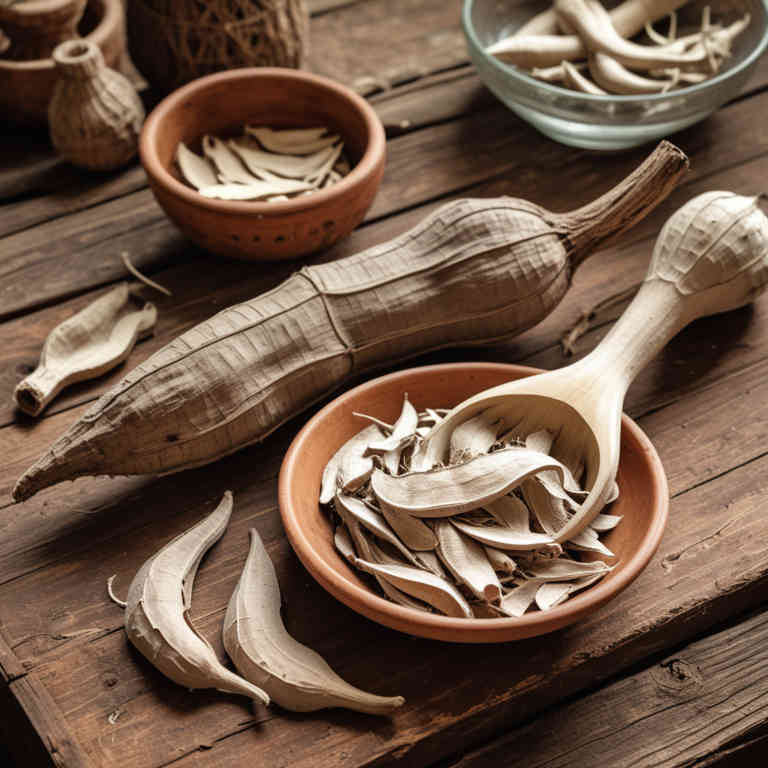Pueraria lobata decoction for medicinal use

Pueraria lobata decoction is a traditional herbal preparation made by boiling the roots of the Pueraria lobata plant, also known as Kwao Krua or Chinese wild yam.
This decoction is widely used in herbalism for its purported ability to support hormonal balance and alleviate symptoms related to menopause, such as hot flashes and mood swings. It is also believed to have anti-inflammatory and antioxidant properties that may aid in conditions like breast pain and menstrual irregularities. In traditional Chinese medicine, it is often prescribed to regulate the flow of qi and blood, promoting overall wellness.
Its use extends to modern herbal supplements, where it is valued for its potential to support women's health.
Uses
Pueraria lobata decoction has been used to treat a variety of health conditions in traditional Chinese medicine for centuries.
Historically, it was valued for its ability to alleviate menopausal symptoms, such as hot flashes and mood swings, and was also used to support digestive health. In traditional practices, it was often prescribed to improve circulation and reduce inflammation. Modern research has explored its potential in managing metabolic disorders and supporting weight regulation due to its isoflavone content.
Today, it is commonly used as a dietary supplement, though its efficacy and safety should be evaluated under professional guidance.
Benefits
Pueraria lobata decoction has health benefits such as improving metabolic function, supporting weight management, and promoting hormonal balance.
It is traditionally used in Chinese medicine to address conditions like menopause symptoms and insulin resistance. The decoction contains isoflavones, which may help regulate estrogen levels and reduce inflammation in the body. It is also believed to enhance cognitive function and support cardiovascular health.
However, it should be used under the guidance of a healthcare professional to ensure safety and effectiveness.
Constituents
Pueraria lobata decoction active constituents include isoflavones, such as daidzein, genistein, and glycitein, which are known for their phytoestrogenic properties.
These compounds may help regulate hormonal balance and support reproductive health. Additionally, the decoction contains saponins, which can enhance immune function and exhibit anti-inflammatory effects. It also includes flavonoids that contribute to antioxidant activity, protecting cells from oxidative stress.
Overall, these active components make Pueraria lobata decoction a valuable herbal preparation for promoting overall wellness and addressing various health concerns.
Preparation
To make Pueraria lobata decoction, start by washing 15-30 grams of dried Pueraria lobata root thoroughly.
Place the root in a pot and add 1 liter of water, then bring the mixture to a boil. Reduce the heat and let it simmer for 20-30 minutes to extract the active compounds. Strain the liquid through a fine mesh or cheesecloth to remove any plant residue.
Allow the decoction to cool slightly before drinking, and consume it once or twice daily as needed.
Side Effects
Pueraria lobata decoction may lead to gastrointestinal discomfort, including nausea, vomiting, and diarrhea, due to its high concentration of isoflavones.
It can also cause hormonal imbalances, particularly in women, by affecting estrogen levels and potentially disrupting the menstrual cycle. Long-term use might increase the risk of liver toxicity, as some studies suggest hepatotoxic effects from prolonged consumption. Additionally, it may interact with certain medications, such as anticoagulants, increasing the risk of bleeding.
Individuals with pre-existing liver conditions or those on medication should consult a healthcare professional before using this preparation.